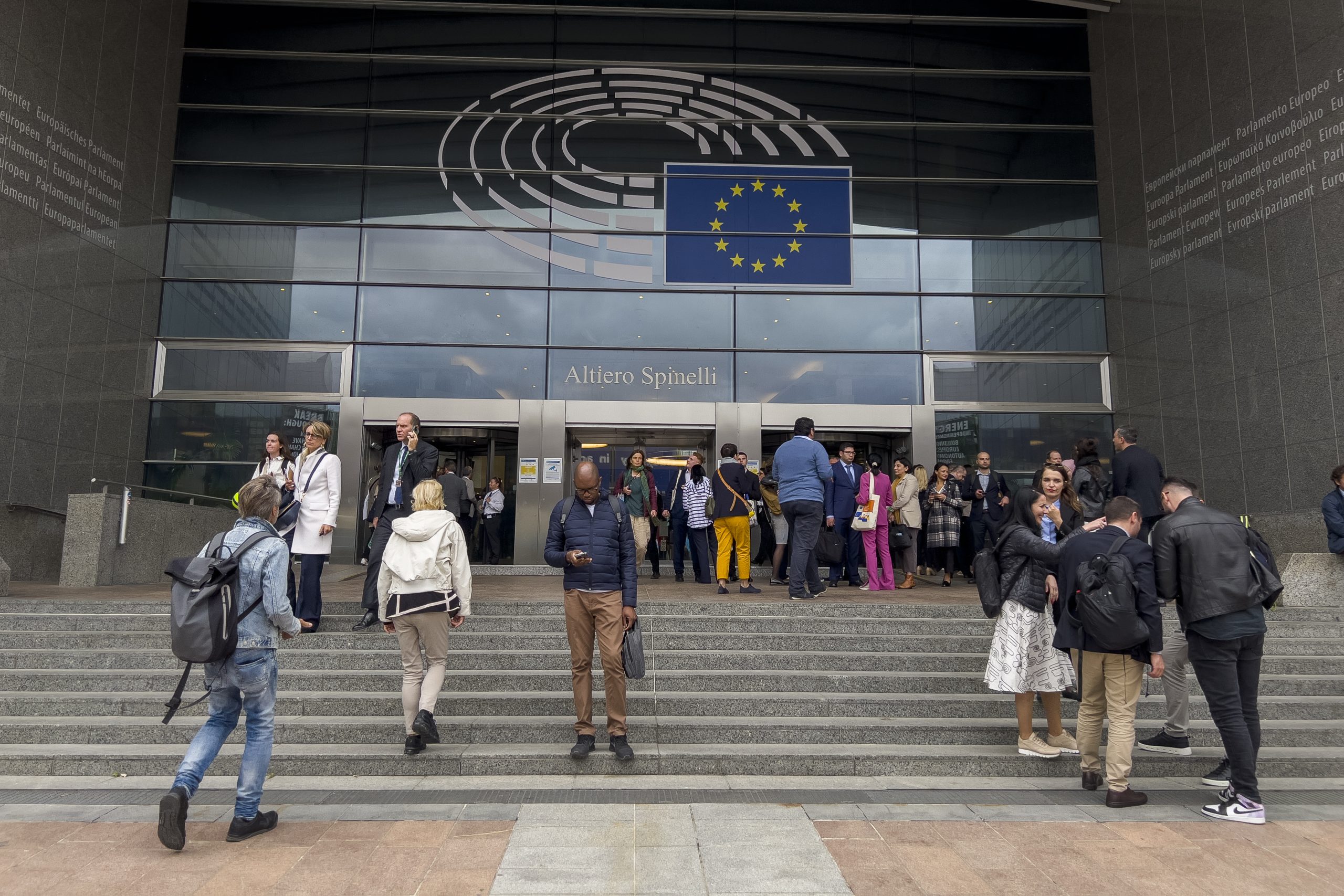
Is It Possible to Enhance Accountability Through a Procedure Lacking Transparency?
The European Commission published its proposal regarding the establishment of an interinstitutional EU ethics body in June 2023. The European institutions, particularly the European Parliament, had faced serious scandals and some of its Members faced criminal investigations. It is clear that there is a problem of lack of transparency and accountability in the workings of the EU institutions. A delegation of the European Parliament even visited the French Haute Autorité pour la transparence de la vie publique to exchange good practices and information in general after the scandals. (A previous post on transparency is accessible here.)
The idea of an interinstitutional ethics body is not new in European public affairs, the institution was already recommended in previous European Parliament resolutions. The public needs an answer to the questions on everyone’s mind and it is demanded rightly so. There is a need to solve the crisis of lack of accountability and transparency in public institutions and to inform
the citizens of any ongoing process to be able to cast their votes accordingly—participating in enhancing transparency and accountability—during the next European Parliament elections.
After the publishing of the proposal of the European Commission on setting up an interinstitutional ethics body, negotiations started between the European institutions on how to modify the proposal to meet their institutional realities and which institutions expressed interest in participating in the new ethics framework.
The Committee on Constitutional Affairs (AFCO) of the European Parliament has held two meetings (on the 20th of March and on the 3rd of April) in the last weeks regarding a report on the adoption of the agreement between the institutions, basically adopting the report that leads to the setting up of the ethics body at the end of its procedure.
The AFCO members held a vote on assigning a rapporteur to the file and thus on an important procedural step leading to the drafting of a report on the endorsement of the agreement during the meeting on the 20th of March. As the coordinators’ meeting (a closed-door, all-powerful meeting of the representatives of the political groups deciding about all significant report-related and agenda-setting questions) on the same day could not decide about the question lacking a clear majority, it was put to vote in the committee. 14 Members of the AFCO committee voted in favor, 13 against, with 1 abstention.
The meeting led to a turbulent debate, many MEPs contesting whether it was in line with the Rules of Procedure of the house—and with the principle of the rule of law—to hold the vote on the same day as the coordinators’ meeting took place and whether the vote on the rapporteur should only be put on the agenda of the next AFCO meeting. MEPs were lacking the time needed to make an educated decision and parliamentary customs were broken, according to some, even the Rules of Procedure of the house. Rule 121 of the Rules of Procedure requires the European Parliament to that “its activities are conducted with the utmost transparency” and according to Rule 216, the committee takes a decision on the agenda at the beginning of the meeting. Some MEPs argued that the vote regarding the person of the rapporteur was tabled during the meeting, so this item was not on the agenda, it should only have been scheduled later. This explains the weak majority behind the adoption of the decision.
Through this process, numerous MEPs were concerned that they did not have a real chance to scrutinize the proposal and to make an educated decision, not to mention the lack of scrutiny of the public.
The cherry on top was the fact that the report on the adoption of the agreement and the establishment of the ethics body was made public on the same day (20th of March) and the MEPs received a less than a 2 day long deadline to table amendments. Furthermore, the most important part of the text, the draft agreement was not even made public. How did the rapporteur draft the text so quickly? How could they hold the necessary negotiations between the political groups and MEPs of the Parliament? How would it be possible for the MEPs to have a real chance of tabling amendments without the text of the agreement and on such short notice, right before the Easter break?
This was not the first anomaly regarding the procedure of this particular report. During the next AFCO meeting, the presentation of the report was already taking place, without being on the official agenda. According to the official calendar of the European Parliament, the AFCO meeting regarding the appointment of the rapporteur (20th of March) took place right before the Easter break of the House and the presentation of the report was hastily convened on the 3rd of April, during an extraordinary meeting, right after the break.
If the scandals happened months and years ago, why did the committee need to hastily appoint a rapporteur and present the report on such short notice, timed around the Easter break? Such rapid, forced procedures are unusual and there seems to be no real justification for it. It is not possible that the rapporteur would have the time necessary for drafting and negotiating, and the MEPs to table amendments, make educated decisions and the public for scrutinizing the proposal as it would be required in a democratic procedure. Especially not if the core of the text, the agreement on which the report is meant to make a decision is not public. Many MEPs voiced their problems with the procedure during the AFCO meeting.
The answer lies probably in the fact that the European elections are only about two months away. The last plenary meeting will take place on the week of the 22nd of April, meaning the rapporteur could only draft the text in such a hasty procedure to be able to reap the party-political and campaign fruits of his work. Even though the next parliament would have more legitimacy, more time for a justified and well-drafted decision, and higher transparency for the public to be able to scrutinize the modifications. The principle of the rule of law would clearly require in this case a normal procedure instead of a hurried one.
There is no question about the importance of stepping up against corruption in public life, which is necessary for the European institutions as well. However, real accountability and transparency can only be reached if the process, that adopts the new accountability regime, is transparent and democratic, respecting parliamentary law, principles, and customs. The MEPs and the public did not have a genuine chance to scrutinize the procedure and the draft. One cannot improve transparency, accountability, and trust in the EU institutions with opaque procedures.
The process of this report is another serious symptom of the fact that there is a significant lack of transparency in the workings of the European Parliament. Hopefully, the next parliament during the next mandate will be able to enhance the transparency and accountability of the institution and thus improve the trust of the public in it as well.
Árpád Lapu is a policy adviser on constitutional issues at the European Parliament since 2019 and a PhD student of the Károli Gáspár University of the Reformed Church in Hungary. Between 2017-2019, he worked as an adviser at the Cabinet of the Minister of Justice of Hungary, conducting comparative constitutional analyses. He has earned his JD at the Pázmány Péter Catholic University in Hungary, has a BA in international relations from the University of Szeged and an MA in European and international administration from Andrássy Gyula German Speaking University in Budapest. He has completed an Edx MicroMaster in cooperation with the Catholic University of Louvain (UCLouvain) in international law. His field of research is non-participation in armed conflicts in international law and constitutional norms regarding non-participation in armed conflicts. He has written publications regarding the future of the EU ETS system of the European Union, institutional reform proposals of the Union, and research in the field of social sciences.








